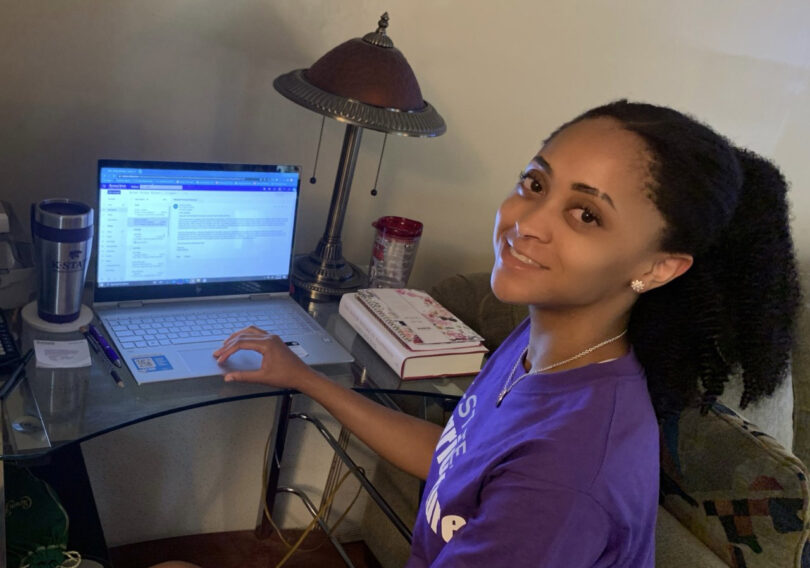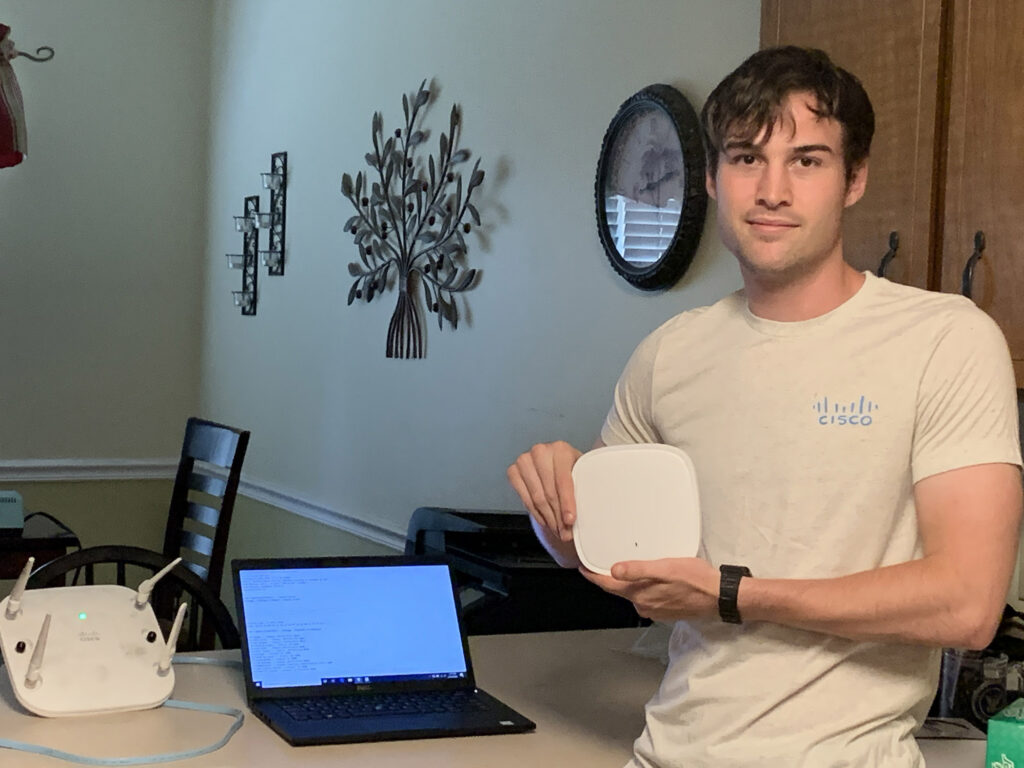Kamaya Brantley had epic plans for the summer: a trip to study in Spain and her pick of research internships scattered across the U.S. These potentially life-changing learning opportunities were spoiled, of course, by the COVID-19 pandemic.
Brantley, a University of Georgia agriscience and environmental systems major, knew that thousands of other UGA students, as well as students across the nation, were suffering similar lost experiences. But that wasn’t any consolation.
“I’m not going to lie; I was really sad,” she said. “All of a sudden, everything got taken away. It was hard to cope with.”
But Brantley didn’t throw up her hands and quit. She made some additional inquiries and was able to find a virtual research fellowship at Kansas State University. So this summer, she’s analyzing soil sample data from her home in Atlanta to help Kansas State researchers improve soil management.
Logan Hutcheson, a UGA computer science major, had also scored an amazing opportunity. He landed a highly competitive internship with Cisco in San Jose, California. It was an opportunity for him to make connections in Silicon Valley, where he hopes to work when he graduates.
And then the pandemic hit. Hutcheson got to keep the internship. But instead of traveling to the West Coast, he’s working from his parents’ attic in Savannah.
In a way, Hutcheson and Brantley are among the lucky ones.
The university responds
At a university that requires an approved experiential learning opportunity to graduate, thousands of UGA students had their experiential learning plans disrupted or canceled because of the pandemic. That includes roughly 2,500 students who had Maymester or Summer Study Abroad opportunities withdrawn because of travel restrictions. The Office of Experiential Learning won’t know just how many students lost learning experiences until the fall.
For the students who were relying on summer experiential learning opportunities to graduate, the university’s curriculum committee set up a waiver process to help students who couldn’t immediately find a replacement. The university also quickly created new opportunities and partnered with organizations to develop new virtual internship options.
UGA’s Innovation District organized a virtual roundtable for businesses and nonprofits to discuss how to host virtual internships. And the Experiential Learning office and the Entrepreneurship Program worked with the Athens Area Chamber of Commerce and local nonprofit AthensMade to host virtual internships.
Other academic units stepped up too. For example, the Warnell School of Forestry and Natural Resources created summer research opportunities for students, especially after the Georgia Department of Natural Resources canceled its summer program because of the pandemic. Terry College’s management information systems department connected skilled students with small businesses and nonprofits across the state to start projects that could help these organizations adapt during the COVID-19 crisis.
Rethinking experiential learning
Andrew Potter, director of university experiential learning, said the current crisis has the university revisiting what an internship can be. He expects a greater emphasis on virtual experiential learning in the future, even when things return to normal. And while much was lost from the cancelation of internships, study abroad and other opportunities, Potter believes students can still gain a lot from virtual internships.
“More and more of the work world is trending toward this remote digital space, and there are certain skills that students need to practice and sharpen to be ready for that world, such as online project management,” said Potter. “The application of those virtual skills can be difficult to replicate in the traditional classroom.
“In hindsight, when our students reflect on what happened this summer, they’re going to realize that having access to different ways of managing work will have really prepared them for success in an increasingly dynamic world of work,” he said.
Brantley and Hutcheson agree, albeit reluctantly.
Brantley was aiming for an internship that would put her in the field and in the lab for soil testing. Instead, she’s getting to sharpen her data analysis skills, which could become useful down the line.
Hutcheson, who is helping Cisco code newly developed wireless access points, hears his co-workers—veterans in Silicon Valley—say they want to continue working remotely, even when the pandemic ends.
Still, both would rather have been doing in-person internships.
“On the professional side, I feel like I’m getting 80-90% of what I could have got if I was in California,” Hutcheson said. “But I still feel like I’m losing out, at least on the fun parts.”







